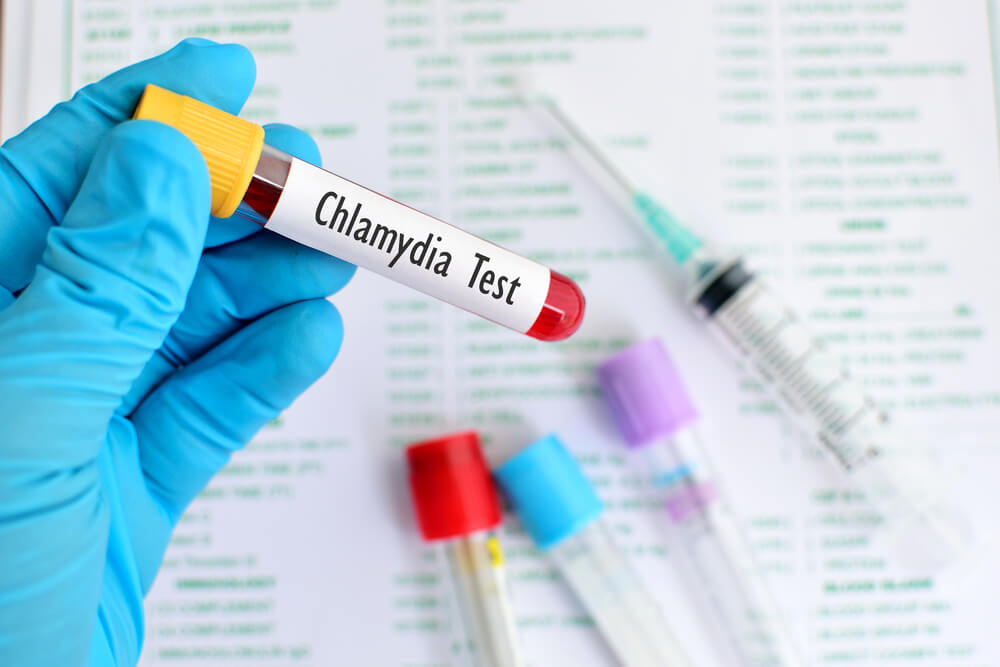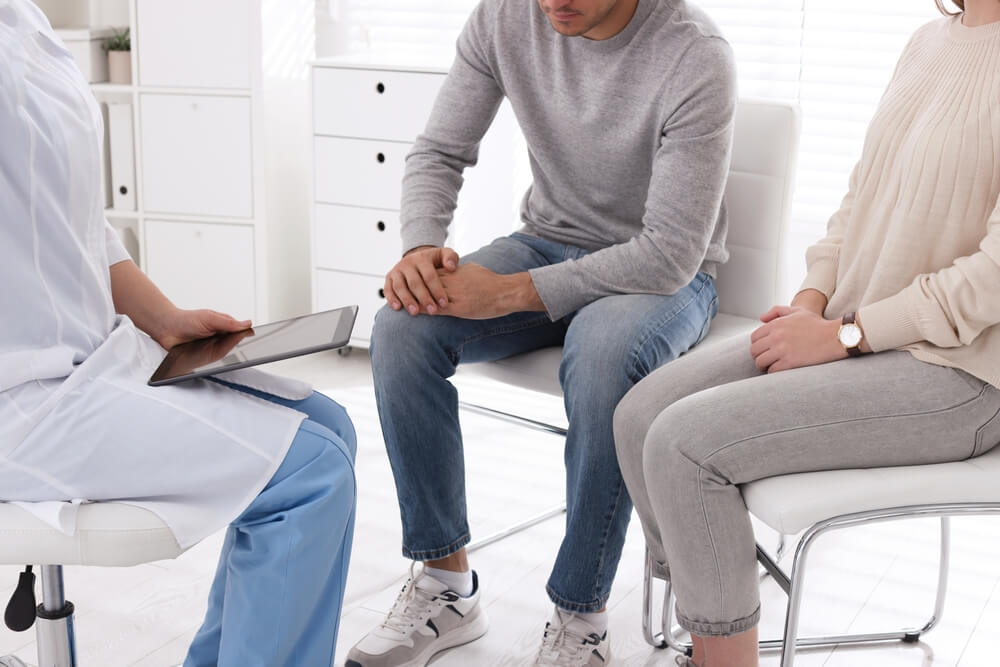Is a blood test for chlamydia practical, and how can you test for this sexually transmitted infection? If you do not already know, chlamydia is a severe sexually transmitted infection (or STI for short) that can lead to complex health consequences if left untreated. If you suspect that you may have been exposed to chlamydia, it’s essential to get tested promptly. One way to test for chlamydia is through a blood test. In this article, we’ll answer common questions such as “how to test for chlamydia” and “how long does it take to get results for chlamydia?” We’ll also discuss the importance of STI screening and how you can get fast and accurate results at a professional and trusted clinic. Whether you’re concerned about your sexual health or just want to be more proactive, read on to educate yourself.
Chlamydia: A Sexually Transmitted Infection To Be Aware Of

Chlamydia is a very common and dangerous sexually transmitted infection caused by Chlamydia trachomatis. It can infect both men and women and is often asymptomatic, which means that people who have it may not realize they are infected. If left untreated, chlamydia can cause serious health complications, such as pelvic inflammatory disease, infertility, and ectopic pregnancy.
Chlamydia testing is essential for early detection and treatment. The sooner chlamydia is diagnosed and treated, the less likely it is to cause serious long-term health problems. Testing is recommended for anyone sexually active, especially if they have had unprotected sexual intercourse or multiple partners.
Other sexually transmitted infections that are similar to chlamydia include gonorrhea, syphilis, and trichomoniasis. These infections can also cause serious health complications if left untreated, so it’s essential to practice safe sex and get tested regularly.
Wearing a condom is crucial for preventing the spread of chlamydia and other sexually transmitted infections. Additionally, practicing good hygiene, avoiding sharing personal items like towels and razors, and limiting sexual partners can help reduce the risk of infection.
If you have any questions or concerns about chlamydia or other sexually transmitted infections, it’s essential to consult with a healthcare professional like Dr. Jessica White-Videa. Receive accurate information and guidance on how to protect yourself and stay healthy.
Why is Chlamydia Testing Important?
As mentioned above, chlamydia is a common sexually transmitted infection with serious long-term health consequences (if left undiagnosed and untreated). Also, this sexually transmitted infection can affect both male and female patients and is often asymptomatic, which means that people with it may not even know they are infected.
That’s why chlamydia testing is so important. Early detection and treatment of chlamydia can prevent the spread of the infection and minimize the risk of complications. Without treatment, chlamydia can cause serious health problems such as pelvic inflammatory disease (PID), which can lead to infertility and chronic pelvic pain in women, and epididymitis, a painful condition in men that can affect fertility.
The Centers for Disease Control and Prevention (CDC) recommends that sexually active women under the age of 25 get tested for chlamydia at least once a year, as well as women over 25 with risk factors such as multiple sexual partners or a history of other sexually transmitted infections. Men who have sex with men should also be tested annually. If you have symptoms such as genital discharge, pain during urination or sexual intercourse, or abnormal bleeding, you should also get tested for chlamydia.
There are different types of chlamydia tests available, including urine tests and swab tests. Some healthcare providers may also offer blood tests to detect chlamydia antibodies, although these are less common. The tests are quick and straightforward and often only require a urine sample or a swab from the genital area.
It’s also important to note that chlamydia can be easily transmitted through unprotected sexual contact, including vaginal, anal, and oral sex. Using condoms and practicing good hygiene can reduce the risk of transmission. It’s also vital to limit sexual partners and get tested regularly, even if you don’t have symptoms.
How to Test for Chlamydia: A Guide
There are several ways to test for chlamydia, including urine, swab, and blood tests. Urine and swab tests are the most common methods of testing for chlamydia and can be done in a healthcare provider’s office or clinic.
During a urine test, you will provide a urine sample that will be analyzed for the presence of chlamydia DNA. A swab test involves taking a swab from the urethra in men or the cervix in women. The swab will then be analyzed for the presence of the chlamydia bacteria. These highly accurate tests can detect the infection even if you don’t have symptoms.
It’s also important to note that while some companies offer at-home chlamydia testing kits, getting tested in a healthcare provider’s office or clinic is generally recommended. This ensures that the test is done correctly and accurately and that you receive appropriate treatment and counseling if the test is positive.
Blood tests can also be used to test for chlamydia, but they are less common. Blood tests detect chlamydia antibodies rather than the bacteria itself. While these tests can be effective in certain situations, they are not as accurate as urine or swab tests and are not typically used for routine chlamydia testing.
In terms of effectiveness, both urine and swab tests are highly accurate and can detect chlamydia even if you don’t have symptoms. The choice of test will depend on your healthcare provider’s recommendation and your individual situation.
Blood Test for Chlamydia: Is it Effective?
A blood test for chlamydia is usually performed in specific situations, such as when a person has symptoms of chlamydia, but a urine or swab test is negative.
A blood test for chlamydia detects the presence of antibodies to the chlamydia bacteria in the blood. However, these tests are not as accurate as urine or swab tests and may not detect chlamydia in recently infected people.
Therefore, blood tests are not typically used for routine chlamydia testing but can be helpful in certain situations where a diagnosis is difficult.
How Long Does it Take to Get Results for Chlamydia?
The length of time it takes to get results for chlamydia can vary depending on the type of test performed and the testing location. In general, however, results for chlamydia are usually available within a few days to a week.
Urine and swab tests for chlamydia are typically processed quickly, and results may be available in as little as 24 to 48 hours. Some healthcare providers may offer same-day testing or rapid tests that can provide results within a few hours.
When it comes to blood tests, they can take longer to process and may require sending the sample to a laboratory for analysis. In these cases, results may take several days to a week to be reported.
Getting Treated and Recovery

Chlamydia is usually treated with a course of antibiotics, which are prescribed by a healthcare provider. The most commonly prescribed antibiotics for chlamydia are azithromycin and doxycycline. These antibiotics work by stopping the growth and spread of the chlamydia bacteria in the body.
Following the entire course of antibiotics as prescribed is essential, even if symptoms improve before the medication is finished. This helps to ensure that the infection is fully treated and reduces the risk of complications or reinfection.
In addition to antibiotics, it’s important to avoid sexual contact until treatment is complete to prevent spreading the infection to others.
Give Us a Call Today
Ideal Women’s Health Care offers comprehensive STI testing and treatment services in a safe and supportive environment. Our team of healthcare professionals is committed to providing personalized care that meets your unique needs and concerns. Book an appointment today.


